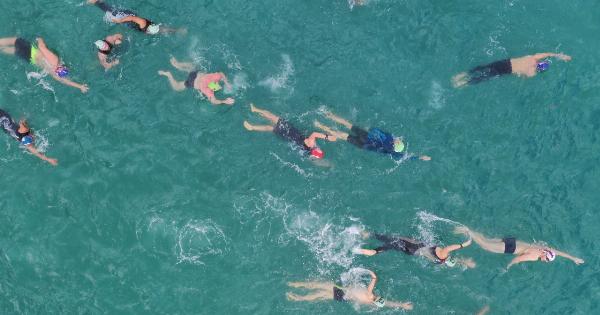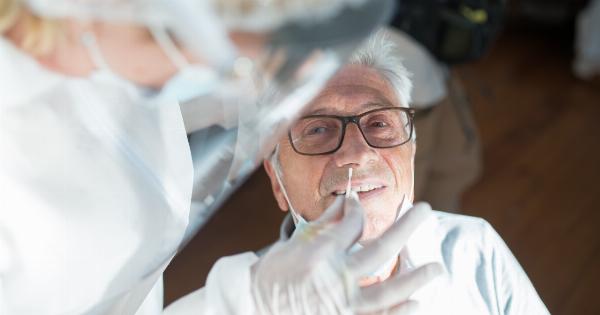Swimming is an enjoyable and refreshing activity that can be equally thrilling for individuals of all ages. With the summer season approaching, swimming in open waters can be an attractive option, offering the possibility of adventure and relaxation.
However, bathing in open waters without knowledge can pose significant dangers to individuals, including water-borne illnesses, drowning, injuries, and more. In this article, we’ll take a closer look at the various hazards of swimming in open waters without proper knowledge and caution.
Water-borne Illnesses
One of the most significant dangers associated with swimming in open waters is contracting water-borne illnesses.
Open waters, especially lakes and rivers, may contain a range of harmful bacteria and viruses that can lead to illnesses such as diarrhea, skin infections, respiratory illnesses, and eye infections. If you swallow or come into contact with contaminated water, you may be at risk of contracting these diseases, which can sometimes have severe or even fatal consequences.
For instance, some water-borne illnesses can cause vomiting, fever, and dehydration, which may lead to hospitalization or death in severe cases.
Drowning
Drowning is another significant danger that individuals face when swimming in open waters without knowledge and caution. Open waters can have unpredictable water currents, waves, and undertows that can pull even experienced swimmers underwater.
If you are unaware of these hazards and are not a strong swimmer, you may find it challenging to stay afloat, resulting in drowning. Additionally, sudden weather changes such as storms can cause high waves, and if you’re swimming in such conditions, it can be much harder to swim and stay safe.
Injuries
Open waters, such as lakes and rivers, may have unpredictable terrain and obstacles, including rocks, sharp edges, uneven surfaces, and sharp branches.
These physical hazards can cause injuries, ranging from minor cuts and bruises to severe injuries such as concussions, spinal injuries, and traumatic brain injuries. Unsuspecting swimmers can easily trip or fall, while swimmers jumping into shallow water can quickly hit their head and get seriously injured.
Additionally, if other people are also swimming in the same area, accidental collisions can occur and cause injuries.
Natural Hazards
Open waters are full of natural hazards that individuals may not be aware of. For instance, some lakes and rivers may have dangerous aquatic life such as venomous snakes, alligators, jellyfish, and even sharks.
Swimmers may also encounter aggressive fish, such as piranhas, that may attack if they feel threatened. Additionally, swimmers may come across hazardous plants such as poison ivy and poison oak that can cause allergic reactions, rashes, and other medical issues. All those hazards can lead to serious health problems and even death in some cases.
Night-Time Swimming Hazards
Swimming in open waters at night can pose unique challenges and dangers for swimmers. For instance, the darkness can significantly reduce visibility, making it harder to navigate underwater obstacles and avoid swimming into underwater hazards.
Additionally, open waters may have different water currents and movements at night, making it much harder to swim and stay safe. Swimmers may feel disoriented and lose their sense of direction, leading to panic and even drowning.
Protecting yourself while swimming in open waters
To stay safe while swimming in open waters, there are several measures you can take:.
- Always swim in designated swimming areas that are inspected for safety.
- Never swim alone and always ensure there is someone else around that can help you if an emergency occurs.
- Wear protective gear such as a life jacket, wetsuit, goggles, and swim cap to stay safe and avoid injuries.
- Prioritize your safety when swimming and don’t take unnecessary risks.
- Don’t swim after consuming alcohol or drugs as this will impair your judgment and risk your safety.
- Know the area where you will be swimming, including the water temperature, currents, and other hazards.
- Don’t jump into shallow water as this can cause head injuries and other medical challenges.
- Get regular medical check-ups to ensure your overall health and consult with a physician on the best safety practices when swimming in open waters.
Conclusion
While swimming in open waters can be an enjoyable and refreshing activity, it’s essential to take proper precautions to stay safe.
Hazards of swimming in open waters without knowledge and caution include water-borne illnesses, drowning, injuries, natural hazards, and night-time swimming hazards. Follow the safety measures highlighted above and prioritize your safety above all else when engaging in swimming in open waters.






























